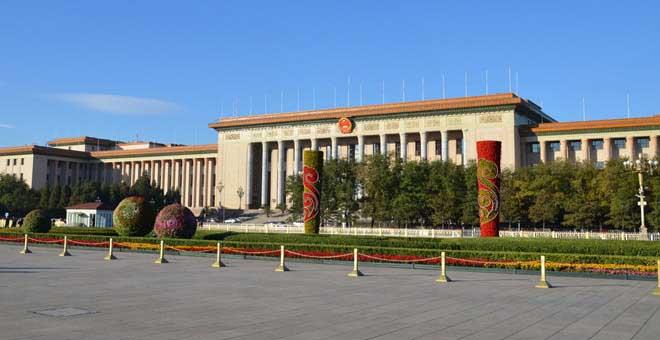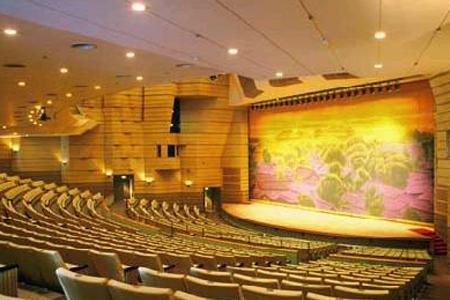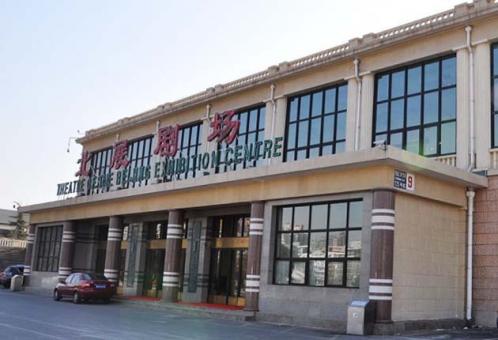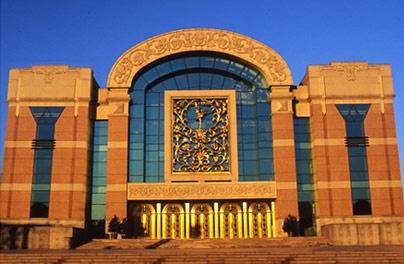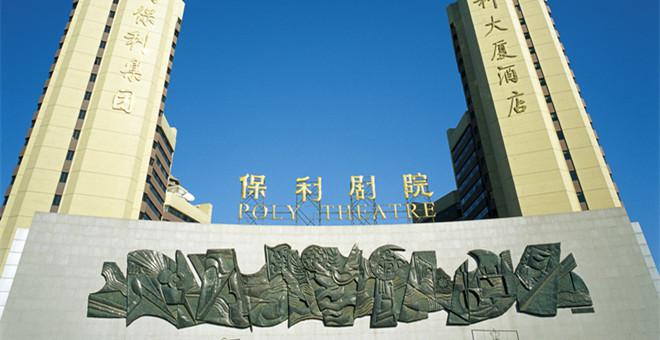健康缘:珍视生命之本,筑牢健康防线
发布时间:2025-02-10 06:30:00 浏览量:45
坊间流传的一首《健康缘》的诗歌。读来很有道理:
健康缘)
医院人多不讲价,到了医院最听话,
让你交钱你交钱,让你干啥你干啥!
辛辛苦苦三十天,也就挣个三四千,
到了医院才知道,花完也就一两天!
辛辛苦苦几十年,一病回到解放前!
万水千山总是情,没有健康真不行!
远看医院像天堂, 近看医院像银行。
走进医院是牢房, 不如提前去预防。
健康是无形资产, 保健是银行存款。
在生活的舞台上,我们时常被各种琐事牵绊,忙碌于工作、家庭、社交之间,却往往忽视了最为珍贵的财富——健康。医院,这个看似救死扶伤的神圣之地,实则也映照出了现代人对健康的漠视与无奈。一句句流传甚广的顺口溜,不仅是对医院现象的生动描绘,更是对健康重要性的深刻警醒。
“医院人多不讲价,到了医院最听话。”这句话道出了医院里患者面对疾病的无助与顺从。在疾病的面前,人们往往失去了往日的议价能力,只能乖乖听从医生的安排,交钱、检查、治疗,无一不照做。这种无奈,正是源于对健康的忽视与对疾病的恐惧。
“辛辛苦苦三十天,也就挣个三四千,到了医院才知道,花完也就一两天!”这句话则揭示了健康与金钱之间的微妙关系。在现代社会,人们为了生计奔波劳碌,但往往忽视了健康的维护。一旦疾病来袭,辛苦赚来的血汗钱便如流水般逝去,让人痛心疾首。
更有甚者,“辛辛苦苦几十年,一病回到解放前!”这句话更是将疾病的破坏性推向了极致。它告诉我们,健康不仅是个人的幸福所在,更是家庭和社会的稳定基石。一旦失去健康,多年的奋斗成果可能瞬间化为乌有,让人痛心不已。
然而,面对这样的现实,我们是否只能束手无策呢?答案显然是否定的。正如那句“远看医院像天堂,近看医院像银行。走进医院是牢房,不如提前去预防。”所揭示的,预防疾病、保持健康才是我们应对健康危机的最佳策略。
健康,是一种无形资产,它无法用金钱来衡量,但却能决定我们生命的长度与质量。而保健,则是我们为这份资产存入的“银行存款”。通过合理的饮食、适量的运动、良好的作息以及积极的心态,我们可以为自己的健康筑起一道坚实的防线。
举个例子,一位名叫张先生的朋友,曾是一位工作狂人。他每天加班到深夜,饮食不规律,常常以快餐充饥。然而,长期的劳累和不健康的生活方式终于让他的身体垮了下来。一次突如其来的心脏病发作,让他不得不住进了医院。经过一段时间的治疗和调养,张先生终于恢复了健康,但他也深刻认识到了健康的重要性。从此,他开始注重饮食健康,坚持每天锻炼,还学会了如何调节工作与生活的平衡。如今,张先生不仅身体健康,事业也蒸蒸日上,成为了一个真正的赢家。
这个例子告诉我们,健康不是一切,但没有健康却会失去一切。因此,我们应该珍视生命之本,筑牢健康防线。不要等到疾病来袭时才后悔莫及,而是要从现在开始,积极预防、科学保健,让健康成为我们人生旅途中最坚实的后盾。
总之,健康缘是我们每个人都无法回避的话题。只有当我们真正意识到健康的重要性时,才能在生活中做出正确的选择,让健康成为我们最宝贵的财富。让我们携手共进,为健康而努力吧!
作者简介:梁世杰 中医高年资主治医师,从事中医临床工作24年,积累了较丰富的临床经验。师从首都医科大学附属北京中医院肝病科主任医师、著名老中医陈勇,侍诊多载,深得器重,尽得真传!擅用“商汤经方分类疗法”、专病专方结合“焦树德学术思想”“关幼波十纲辨证”学术思想治疗疑难杂症为特色。现任北京厚德为怀医生集团渐冻症研究中心主任,北京树德堂中医研究院研究员,北京中医药薪火传承新3+3工程—焦树德门人(陈勇)传承工作站研究员,国际易联易学与养生专委会常务理事,中国中医药研究促进会焦树德学术传承专业委员会委员,中国药文化研究会中医药慢病防治分会首批癌症领域入库专家。荣获2020年中国中医药研究促进会仲景医学分会举办的第八届医圣仲景南阳论坛“经方名医”荣誉称号。2023年首届京津冀“扁鹊杯”燕赵医学研究主题征文优秀奖获得者。事迹荣登2024年第四季刊《当代科学家》杂志。
Health Benefits: Valuing the essence of life and strengthening health defense
There is a poem called "Good Health" that is circulated around the world. It makes a lot of sense to read:
Good health)
The hospital was full of people and didn't charge much, but when they got to the hospital, they were most compliant.
Let you pay you pay, let you do whatever you want!
After thirty days of hard work, I earned three or four thousand dollars,
When I got to the hospital, I knew it would take a day or two!
After working hard for decades, illness returned to pre-liberation!
All rivers and mountains are always loving, and it's really bad without health!
Look at the hospital like heaven in the distance, look at the hospital as a bank in the distance.
Going into a hospital is a cell. Better to prevent it ahead of time.
Health is an intangible asset. Health care is a bank deposit.
On the stage of life, we are often distracted by all kinds of chores, busy with work, family, and social interactions, and often neglect our most precious asset - health. Hospitals, which seem to be sacred places to save lives, also reflect modern people's disregard for and frustration with health. The words and phrases that have become widely used are not only a vivid depiction of the hospital phenomenon, but also a profound reminder of the importance of health.
"There are too many people in hospitals to charge a price. When they get there, they are most compliant." This phrase speaks to the helplessness and complacency of patients in hospitals in the face of illness. In the face of illness, people often lose their bargaining power in the past, and can only obey the doctor's arrangements, pay money, examine, and treat each and every time. This frustration stems from the neglect of health and the fear of disease.
"After thirty days of hard work, I earned three or four thousand dollars. I didn't know until I got to the hospital that it would take a day or two!" This phrase reveals the delicate relationship between health and money. In modern society, people struggle to make ends meet, but often neglect the maintenance of health. Once a sickness hits, the hard-earned money passes away like a stream, which makes people sad.
What's more, "After working hard for decades, I fell ill and returned to pre-liberation!" This phrase takes the devastation of disease to the extreme. It shows us that health is not only the happiness of individuals, but also the foundation of stability for families and societies. Once you lose your health, the fruits of years of struggle can be instantly wiped out and it can be painful.
However, in the face of such a reality, can we do nothing? The answer is obviously no. Just like that.“From a distance the hospital is like heaven, from a distance it is like a bank. Going into a hospital is a cell, so it's better to prevent it ahead of time.” The best way to deal with a health crisis is to prevent illness and keep healthy.
Health is an intangible asset that cannot be measured in monetary terms, but it can determine the length and quality of our lives. Health care, on the other hand, is the "bank deposit" we put into this asset. By eating right, exercising properly, keeping a good routine and having a positive mindset, we can build a solid defense against our health.
For example, a friend named Mr. Zhang was once a workaholic. He worked late into the night every day, ate irregularly and often ate fast food. However, a long period of exhaustion and unhealthy lifestyle finally brought his body down. A sudden heart attack forced him to be admitted to hospital. After a period of treatment and maintenance, Mr. Zhang finally regained his health, but he also recognized the importance of health. Since then, he has focused on a healthy diet, exercised every day, and learned how to adjust work-life balance. Today, Mr. Zhang is not only healthy, but also thriving in his career, becoming a true winner.
This example shows us that health is not everything, but that without health you lose everything. Therefore, we should value the very essence of life and build healthy defenses. Don't wait until a disease hits to regret it, but start now with proactive prevention, science-based care, and make health the strongest backstop on our life journey.
In short, health is a topic that none of us can avoid. Only when we truly realize the importance of health can we make the right choices in life and make health our most valuable asset. Let us work together for health!
Author Bio: Liang Shijie is a senior medical practitioner in traditional Chinese medicine. He has been engaged in traditional medicine clinical work for 24 years and has accumulated a wealth of clinical experience. Following Chen Yong, chief physician of liver disease at Beijing Traditional Medicine Hospital, affiliated with Capital Medical University, and renowned old Chinese medicine, he has been treated for many years and received great attention. He specializes in the treatment of difficult diseases using "conversational traditional therapy" and special treatments combined with the academic ideas of Jiao Shude and Guan Yubo's ten-level diagnosis.He is currently the director of the Center for Diffusion Research of Dr. Houde Wei Group in Beijing, a researcher at the Shude Tang Institute of Chinese Medicine, and a fellow at the new 3 + 3 project of traditional Chinese medicine flame inheritance in Beijing - a scholar at the inheritance work station of Jiao Shude's protégés (Chen Yong),He is a standing committee member of the International Expert Committee on E-learning and Health Care, a member of the Jiao Shude Academic Heritage Special Committee of the Chinese Association for the Advancement of Chinese Medicine Research, and the first cancer specialist to be included in the chapter of the Chinese Pharmaceutical Culture Research Association. Won the 2020 China Association for the Promotion of Traditional Chinese Medicine Zhongjing Medical Branch held the eighth session of the Medical Saint Zhongjing Nanyang Forum "Classic Prescription Famous Doctor" honorary title. The winner of the first Beijing-Tianjin-Hebei "Pingui Cup" Yanzhao Medical Research Essay Award in 2023. The story was featured in the fourth edition of Current Scientist in 2024.

